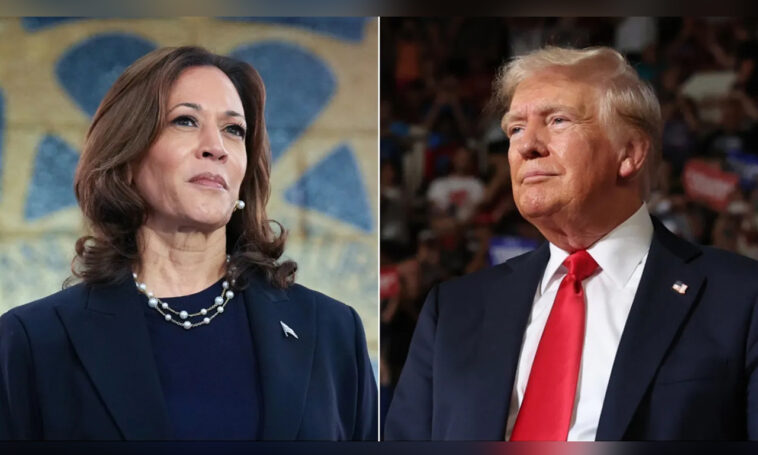Donald Trump recently shared his thoughts on Vice President Kamala Harris’ unsuccessful attempt to secure the presidency, describing her decision to run as a critical misstep. In his Time “Person of the Year” interview, Trump highlighted the challenges Harris faced, asserting that her campaign was “doomed from the very beginning.” According to Trump, Harris’ inability to effectively assess her own strengths and weaknesses played a significant role in her downfall.
Trump pointed out that one of Harris’ key failings was her limited engagement with broader audiences during her campaign. Unlike his strategy, where he made concerted efforts to reach diverse platforms and media outlets, Harris seemed reluctant to take a similar approach. Trump emphasized how critical it was to connect with influential figures like Joe Rogan, who boast massive audiences across varied demographics. Reflecting on his own campaign approach, he said, “I was willing to talk to anyone who would listen, whether it was traditional media or alternative platforms like podcasts. I made sure my message was heard by as many people as possible.”
The former president-elect specifically noted the impact of his interview with Joe Rogan, which ran for an extensive three and a half hours. Trump stated
“That kind of visibility and openness made people see me as relatable, When Harris avoided these types of engagements, it raised questions about her approach. People started wondering, ‘Why is she so inaccessible?’”
He contrasted this with his own willingness to engage with media outlets and voters alike, regardless of the forum. Harris’ campaign, according to Trump, failed to resonate with the electorate largely because of this perceived disconnect. He argued that modern campaigns demand direct communication, particularly through channels that appeal to younger and more diverse voter bases. Trump’s remarks shed light on his belief that political success in today’s landscape requires adaptability and a willingness to meet voters where they are both figuratively and literally.
In addition to his comments on Harris, Trump reflected on the broader significance of his political comeback, which earned him Time Magazine’s “Person of the Year” recognition for the second time. The publication had previously awarded him the title following his 2016 presidential election victory. In his acceptance, Trump expressed gratitude for the honor, which acknowledged his dramatic return to political relevance after a tumultuous few years.
Time Editor in Chief Sam Jacobsm praised Trump’s ability to orchestrate “a comeback of historic proportions,” describing his victory as a moment that redefined the American political landscape. In his editorial, Jacobsm highlighted Trump’s role in fostering a political realignment that energized a wide spectrum of voters, particularly young men. According to Time, this demographic played a pivotal role in Trump’s decisive 2024 victory, marking the first time he won the popular vote and flipping key swing states to Republican control.
The outlet further emphasized the unprecedented nature of Trump’s 2024 win, noting that he is now set to become the oldest president in U.S. history. Moreover, his victory comes despite or perhaps in defiance of a series of legal challenges. Earlier in the year, Trump was convicted on 34 counts of fraud by a New York jury, making him the first convicted felon to win the presidency. This unique aspect of his candidacy has sparked both admiration and controversy, as supporters view his resilience as evidence of strength, while critics question the implications for the office of the presidency.
Trump’s 2024 victory represents a watershed moment in American politics. It underscores his enduring influence over the Republican Party and his ability to galvanize a voter base that is both fiercely loyal and increasingly diverse. While his critics continue to debate the ethics and legality of his actions, there is no denying that Trump has fundamentally reshaped the modern American political arena.
In reflecting on both his victory and Harris’ defeat, Trump’s remarks reveal a clear lesson: successful political campaigns demand a combination of strategy, adaptability, and personal engagement. Whether one agrees with his methods or not, Trump’s ability to navigate these waters highlights the evolving dynamics of leadership in the digital age. His insights into Harris’ missteps serve as a stark reminder of the importance of understanding one’s audience and leveraging every available platform to connect with voters.



